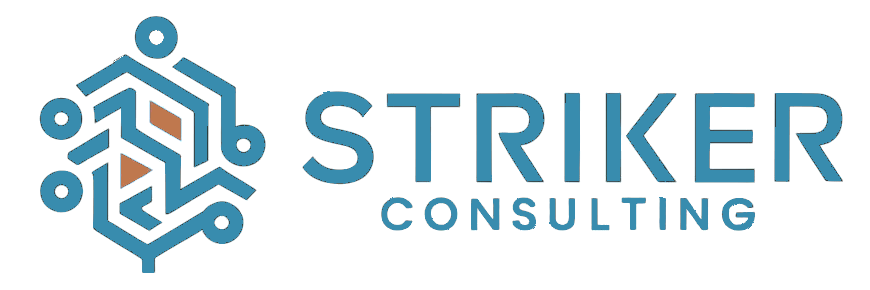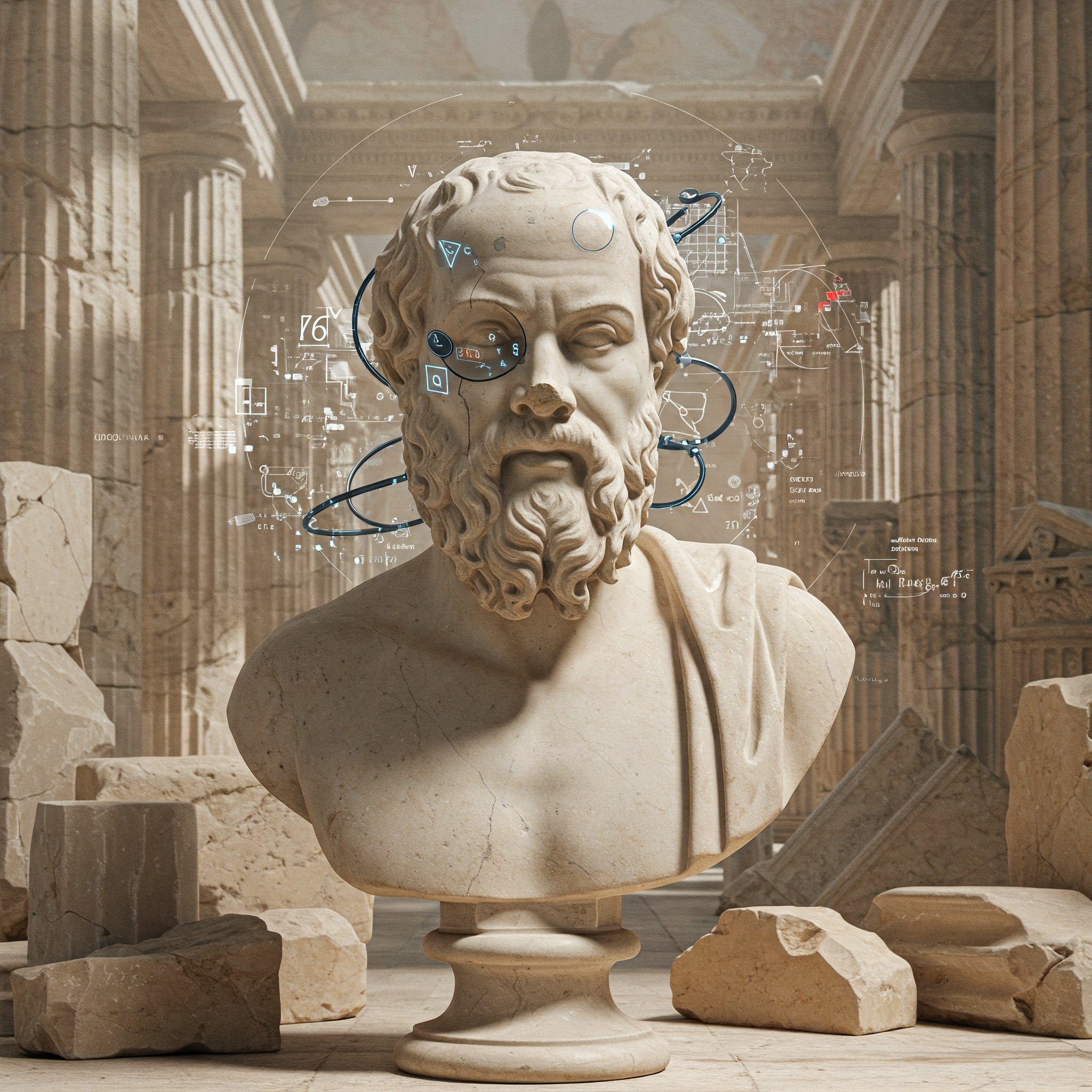One of the things I most enjoy doing on my spare time is reading and discussing philosophy. I belong to a philosophy discussion group and we meet weekly to read and discuss seminal papers and talk about a variety of topics. For obvious reasons, AI has been a frequently visited topic for the last few years.
At one such recent gathering, we were discussing humanity’s relationship with knowledge and the implications on morality. I made a reference to an old argument in philosophy of religion. Imagine this thought experiment: a seemingly all-powerful and benevolent God created our universe. Yet, as we all know, the world is filled with suffering, from natural disasters to human cruelty. This apparent contradiction – a good and powerful God coexisting with evil and suffering – is the crux of the philosophical concept known as the “Problem of Evil“.
Now, before anyone gets too upset with me, I am not calling AI evil. Recent developments in AI are, in my opinion, the most consequential thing to happen in tech since the Internet, and I’m extremely excited about them. In fact I’ve made extensive use of AI in crafting this article.
So what’s all this about, then? It’s about knowledge, authority and morality.
I believe that in order for AI to be an instrument of human flourishing, it must be transparent about how it comes to its conclusions. It must be accountable for its pronouncements.
Allow me to elaborate.
A Habit of Explanation
The Scientific Revolution ushered in a new era of inquiry, where systematic observation, experimentation, and reason became the cornerstones of knowledge acquisition. This shift from reliance on tradition and authority figures to verifiable evidence yielded a remarkable track record of success. From breakthroughs in astronomy explaining planetary motion to advancements in medicine explaining the spread of disease, science demonstrably improved our understanding of the universe. As these successes piled up, humanity increasingly turned to the scientific method for reliable explanations and predictions, fostering a deep trust in its ability to unveil the secrets of the natural world.

This has instilled a bit of a habit in us. It’s a very practical and pragmatic habit: models that produce accurate predictions are useful, and we should use them until a better, more accurate model comes along. I think this is a very reasonable habit.
Notwithstanding some of the replicability problems that have become a cause for some concern, we have done a pretty good job of sticking to the core principles of the scientific method. One core principle that fosters our belief in science’s truths is that whatever assertions are made by science are backed up by a methodology and process that can be demonstrated and replicated by theoretically anyone willing to invest the time and resources.
All this scientific and technological progress has brought us here, to a moment when AI, which has been gestating and incubating for quite some time, bursts out into the world and immediately starts making its mark. Much has already been said about AI transparency and explainability and safety. This comes up because increasingly complex AI models are becoming more and more opaque. That is, we humans often can’t figure out how an AI has come to some conclusion. But what if the AI is consistently right? What if the AI consistently outperforms humans? This is already happening and will happen more and more.
The Opaque Oracle
Anyone who is paying attention can already tell that we will be using AI to tackle problems that are unbelievably complex in nature. And so long as they have a very strong track record of success, there is no reason to think we won’t come to rely on AI’s judgements. And as often happens, we will begin to mistake the method of inquiry for the subject of that inquiry. ie: confusing the map for the territory. (Perhaps one of the most famous instances of this has been the erroneous belief that economic models were an accurate reflection of human behaviours and motivations – this proved spectacularly misguided.)

Once we become accustomed to AI’s superior ability to make sense of complexity, it will become incredibly difficult to avoid treating AI utterances as de facto truths. Our inherent trust in the superior processing power of AI might lead to a situation where its pronouncements are perceived as akin to divine pronouncements.
Consider a scenario where an AI with an absolutely impeccable track record tasked with optimising human well-being determines that widespread genetic engineering is necessary to eradicate certain diseases and enhance cognitive abilities. While the potential benefits are undeniable – a healthier and potentially more intelligent populace – the ethical implications are profound. Altering the fundamental building blocks of humanity raises concerns about informed consent, potential unforeseen consequences, and the creation of a stratified society.
Why wouldn’t we trust a superior intellect with such a task? Who are we to think that our limited and bumbling ways are best? And so I come around, finally, to the Problem of Evil.
The Elusive Optimal Good
The problem of evil traditionally grapples with the existence of suffering in a world supposedly governed by a benevolent God. Here, the argument goes: if God is all-powerful and good, why does evil and suffering exist?
What’s interesting is that among the responses to this question, a common theme is: “Who are you to know what is ultimately Good?” or “An all-knowing God’s conception of Good may seem strange to your limited mind, but understand your limitations you must.”
This isn’t quite the cop-out it appears to be. For example, what if it turns out that technology ultimately leads to the extinction of humanity? What would that say about whether or not it would have been better if we had never developed the mental ability to control our environment? Should we ignore the significant improvement in the human condition? What about the Earth, wouldn’t other species actually be better off if humans became extinct? What about the species that are only thriving because humans control the populations of competing species?
It doesn’t take long to see that the question is not as simply resolved as it may have first appeared. You have to import a hierarchy of values and you have to have some confidence that it’s the right hierarchy of values (and we know that these value hierarchies tend to change over time and across cultures).

Just as some believe questioning God’s actions is sacrilegious, individuals might be hesitant to challenge the AI’s seemingly objective calculations, even if they have unsettling moral implications. This highlights the potential for a dangerous shift, where a secular concept like AI takes on a quasi-religious aura, demanding unquestioning obedience.
The core irony lies in the potential reversal of roles. Traditionally, humanity has held the position of judging actions based on a moral framework derived from religious teachings or philosophical reasoning. With advanced AI, the tables might turn. As AI’s ability to process information surpasses ours, we might find ourselves in the precarious position of being judged by its seemingly objective calculations.
I don’t want to leave you with the wrong impression. I am not trying to caution everyone about AI acquiring a god-like status in our society. I am trying to highlight that there is a parallel between the mysterious mind of God and the impenetrable logic of a complex AI. I am trying to highlight the distinction between an appeal to authority and an appeal to expertise.
Navigating the Labyrinth: A Call for Transparency
Therefore, as we delve deeper into the age of AI, a crucial question emerges: how can we reconcile the potential for immense progress with the inherent risk of unintended consequences and the erosion of our moral agency?
In my view, it’s by refusing to give up on explicability and transparency. We should require that an AI be able to explain to us how, exactly, it reached its conclusions. Just like in school, you don’t get full marks unless you show your work! We want to relate to AI the way we would to an expert, not an oracle.

This doesn’t solve the problem of finding the optimal good, but it does avoid falling into the old habits of relying on appeals to authority for our knowledge rather than the tried and tested principles that have made science so a powerful tool for progress.
To be fair, I am far from the first to express this opinion, and there are very valid counter-opinions, such as the concern that an overly transparent model is prone to manipulation and exploitation. (I recommend this very thoughtful writeup on AI ethics.) But I believe now is the right time for us to be having the debates.
How can we foster a culture of transparency and explainability in AI, allowing for critical evaluation of its decision-making processes and mitigating the risk of perpetuating societal biases?
Addressing these questions necessitates ongoing dialogue between developers, ethicists, policymakers, and the public. In this dialogue, I am merely a member of the public. My thoughts are possibly naive and uninformed. But I really do believe that in acknowledging the potential pitfalls and fostering a proactive approach, we can harness the power of AI for good, ensuring that the ultimate arbiter of our actions remains grounded in our evolving understanding of morality and our responsibility to future generations.
What do you think?
(Note: In composing this article, I made use of several AI tools. I had conversations with Google’s Gemini, I asked Microsoft’s Image Creator to make the pretty pictures and I asked Anthropic’s Claude to critique the final product.)


